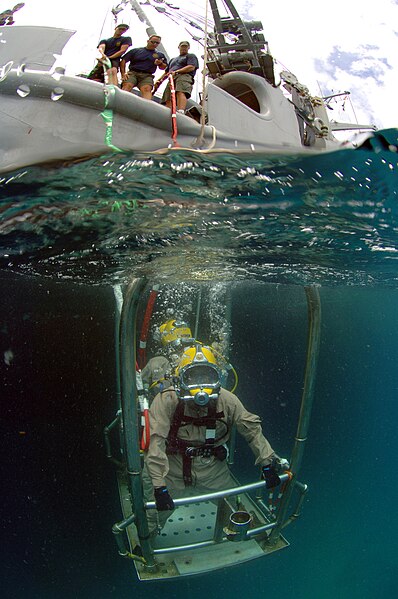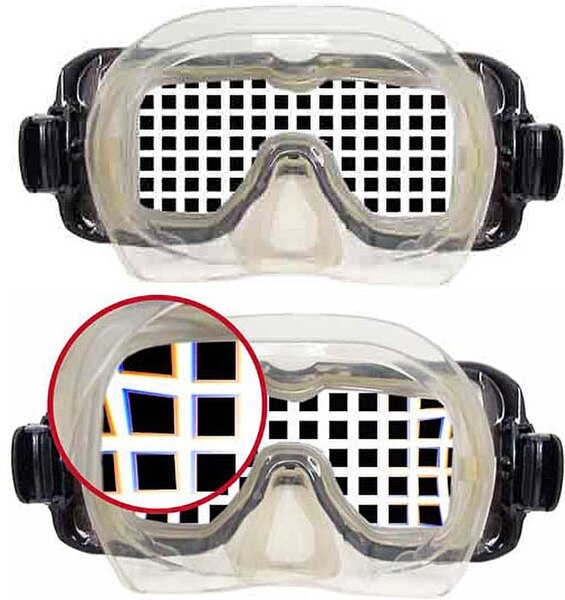Recreational diving or sport diving is diving for the purpose of leisure and enjoyment, usually when using scuba equipment. The term "recreational diving" may also be used in contradistinction to "technical diving", a more demanding aspect of recreational diving which requires more training and experience to develop the competence to reliably manage more complex equipment in the more hazardous conditions associated with the disciplines. Breath-hold diving for recreation also fits into the broader scope of the term, but this article covers the commonly used meaning of scuba diving for recreational purposes, where the diver is not constrained from making a direct near-vertical ascent to the surface at any point during the dive, and risk is considered low.
Beginner diver in St. Croix, United States Virgin Islands
Scuba diver in Panama
Free diver (breath hold) in Cyprus
Freediving while snorkeling in shallow water, Red Sea
Underwater diving, as a human activity, is the practice of descending below the water's surface to interact with the environment. It is also often referred to as diving, an ambiguous term with several possible meanings, depending on context.
Immersion in water and exposure to high ambient pressure have physiological effects that limit the depths and duration possible in ambient pressure diving. Humans are not physiologically and anatomically well-adapted to the environmental conditions of diving, and various equipment has been developed to extend the depth and duration of human dives, and allow different types of work to be done.
Surface-supplied divers riding a stage to the underwater workplace
Mild barotrauma to a diver caused by mask squeeze
Views through a flat mask, above and below water
Recreational breath-hold divers in basic equipment with floats and catch bags suitable for collecting lobster or shellfish








